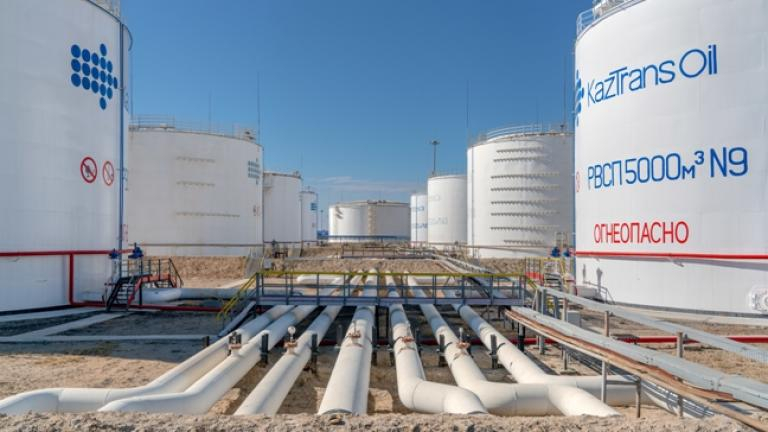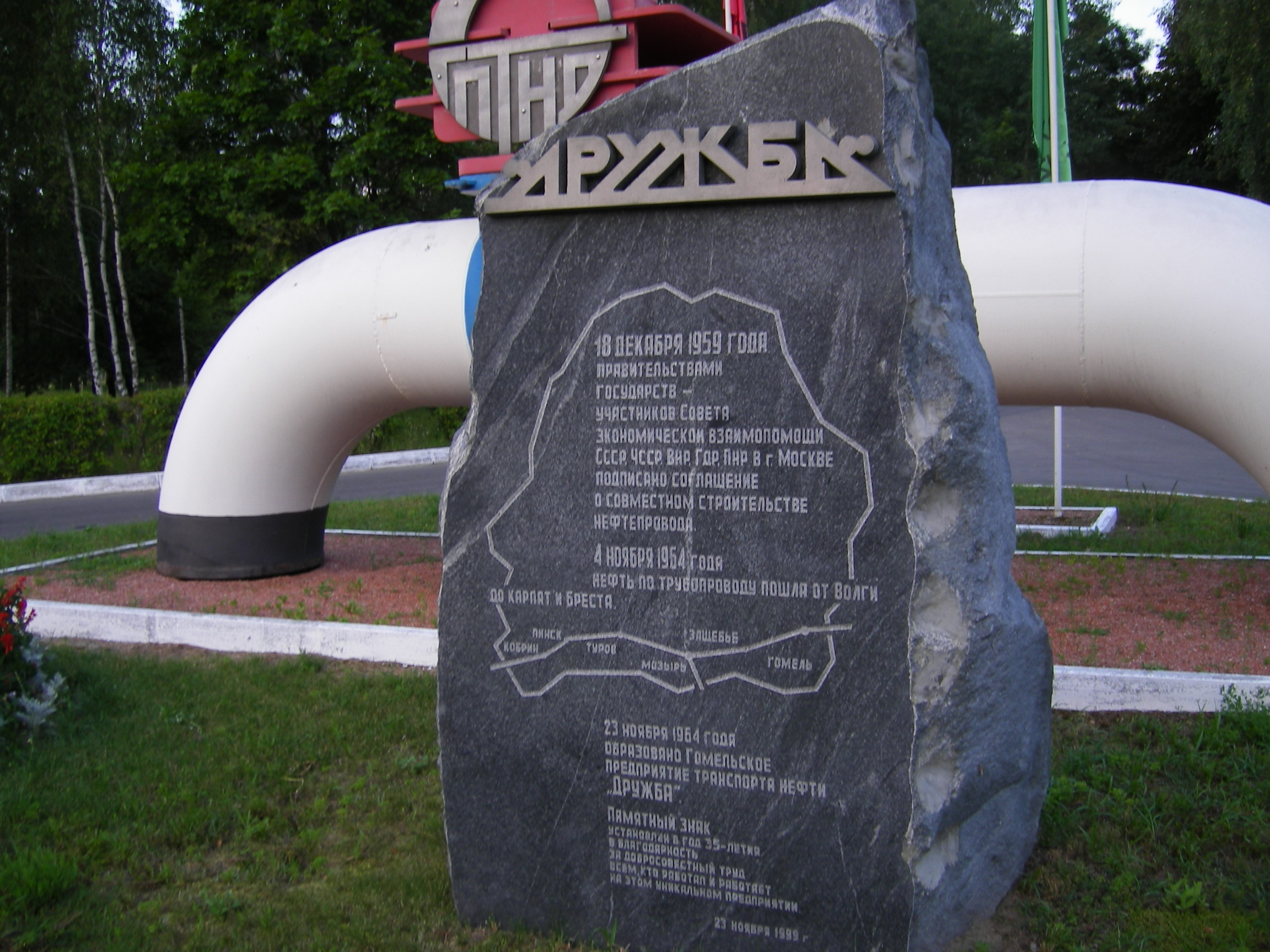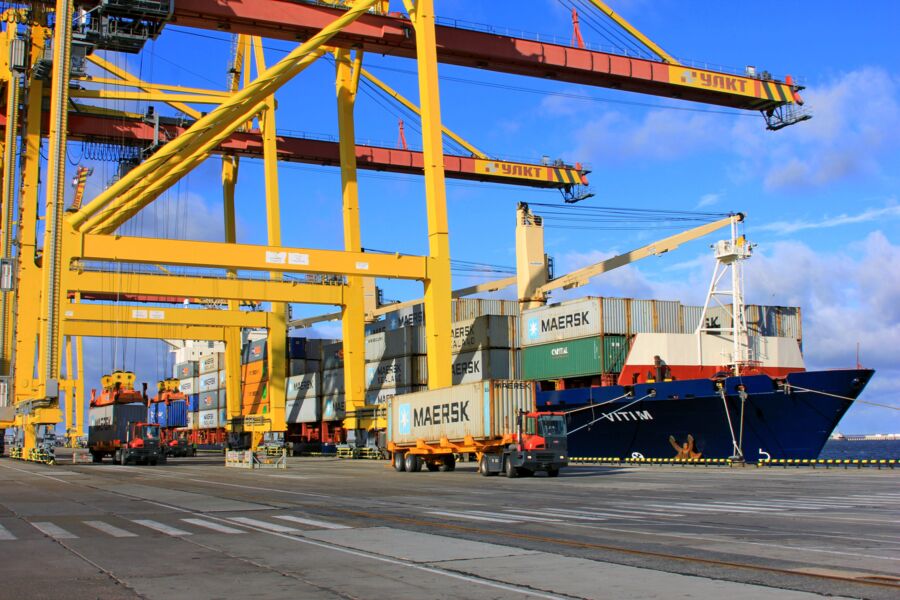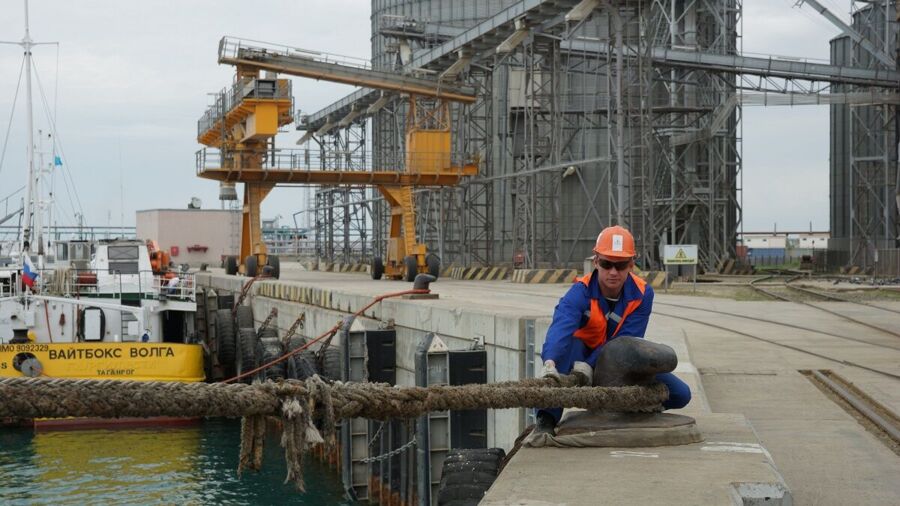Poland and Germany are lobbying to import Kazakhstan’s oil via a major Russian pipeline, yet Kazakhstani suppliers might not have enough to meet the European demand.
Magzum Mirzagaliyev, CEO of state-owned Kazmunaigas, held high-level talks with German officials in Astana this week and confirmed that the company is ready to consider shipments to Germany.
Kazakhstan could send its oil to Germany via the Druzhba pipeline, which connects Russia with customers in Europe. In mid-November, supplies via its southern branch, pumping oil to refineries in Hungary, Slovakia, and the Czech Republic, were halted following Russia’s attack on the pipeline in Ukrainian territory. Poland, a customer linked to Druzhba’s northern section, has recently lobbied for sanctions against Druzhba, in an effort to exit previous agreements to buy Russian oil without penalties.
Yet, on December 20, Russia’s pipeline monopolist Transneft said that it had received requests for oil shipments for 2023 via Druzhba from both Poland and Germany. Germany rejected the claim and said it plans to reduce import from Russia to zero.
Because of a European Union ban on buying Russian oil sold via sea shipments, pipeline supplies have become one of the last resorts for European refineries, as these scramble to find alternative sources of crude.
The Transneft statement included a suggestion that Druzhba could also pump Kazakhstani oil, which does not fall under Western sanctions.
The mentions of Kazakhstani oil, however, raised eyebrows among industry experts. Kazakhstan, in fact, could only feed Druzhba via the Atyrau-Samara pipeline, which pumps, at best, 17 million tons per year (mta) of Kazakhstani oil to the Samara hub, where crude is mixed with Russia’s Urals blend.
By comparison, the Druzhba system has a capacity of 85 mta.
Oleg Chervinskiy, a veteran journalist focusing on Kazakhstan’s oil industry, told Vlast that Kazakhstan could only play a marginal role in substituting Russian oil exports.
Located 100 kilometers north-east of Berlin, Schwedt is a refinery co-owned by a consortium of oil companies comprising Russia’s state-owned Rosneft. The Polish government said last week that it will supply 70% of its demand, just not from Russian sources.
Though Kazakhstan’s oil has become the top option for European customers, seizing a 13% share of the market on the back of shrinking Russian supplies, a further growth is unlikely.
Not-so-Friendly
Built during Soviet times, the Druzba (“Friendship” in Russian) pipeline linked Russian oil fields with industrial regions across the Comecon, the Council for Mutual Economic Assistance, which grouped the countries of the Eastern Bloc until 1991. Since the fall of the Soviet Union, it has continued to serve as the major westward export route for Russian crude.
Already in 2015, the Kazenergy business association predicted that the progressive abandonment of the rail link to the Black Sea via Russia (which shrank by 75% in 2014) would have boasted the role of Kazakhstan’s supplies via the Druzhba pipeline.
Talks between the German and the Kazakhstani government started in September, as a prospective ban of Russian oil would have compromised supplies to Schwedt. For the German side, the solution had always been the supply of Kazakhstan’s crude via the Druzhba pipeline, which links to Schwedt and refineries in Poland.
A spokesperson for the German ministry of economy told specialized magazine Upstream that Kazakhstan is poised to play a role.
“Negotiations between the (Schwedt refinery) owners and Kazakhstan on delivery volumes are in full swing. We are providing support wherever we can,” the spokesperson said.
Yet, Transneft’s executive Nikolay Tokarev mentioned in another interview that, though technically possible, shipments of Kazakhstan’s oil to Germany could be thwarted by the “unfriendly” relations between Germany and Russia.
According to Marcus How, head of analysis at the political risk advisory firm VE Insights in Vienna, both Germany and Poland lack clarity in their policy towards Russian oil.
“Poland wants sanctions against the Druzhba pipeline because this would allow its exit from long term contracts with Russia. But Poland needs Germany to agree to these sanctions and, should the pipeline be sanctioned, Germany would be unable to import any oil through it,” How told Vlast in a phone interview.
Germany is thus playing the hand of trying to substitute Russian for Kazakhstani oil, but still buy shipments through Druzhba.
“The German government has sent mixed messages, also to their own businesses. This is something that needs to be resolved soon. There is no point in kicking the can down the road,” How observed.
The diplomatic row that followed Russia’s attack on Ukraine in February has resulted in a dramatic drop in trade between European countries and Russia and has kick-started a range of economic sanctions against Russian businesses and officials.
In 2019, Belarus had lobbied to buy Kazakhstan’s crude via Druzhba, in an effort to diversify its supply base, as it also expected sanctions against Russian oil.
Realistic Options
Quoted in Russian media, Kazakhstan’s energy minister Bolat Akchulakov said in October that his country is not planning to increase supplies via Druzhba because export volumes are already booked. When asked about potential additional requests for oil from Germany, Akchulakov answered: “For that, we need oil and at the moment we don’t have spare quantities. We already pump via the CPC.”
The Caspian Pipeline Consortium (CPC) ships around 80% of all oil exports from Kazakhstan from the Atyrau region to the Black Sea port of Novorossiysk. Being categorized as an “international pipeline,” it is not threatened by sanctions, despite traveling through Russian territory and being co-owned by Transneft.
In 2022, the CPC suffered repeated interruptions to its oil flows and to maritime terminal loading procedures due to inclement weather, environmental fines, and, possibly, diplomatic disagreements between the Russian government and Kazakhstan, which decided to avoid supporting Russia’s war in Ukraine on the international stage.
In October, sources told Reuters that Tengizchevroil, one of Kazakhstan’s largest oil producers, was looking to send oil to Finland via a combination of pipeline and marine shipments.
Looking for alternatives is logical for Kazakhstan according to How.
A potentially viable way out for Kazakhstan is to channel its oil shipments towards the Ust-Luga maritime terminal in Russia’s Leningrad region on the shores of the Gulf of Finland. The Atyrau-Samara pipeline is linked to Ust-Luga via a Druzhba offshoot.
Oil industry veteran Daniyar Gabdullin said the Ust-Luga route could be viable because of its flexibility.
“This is actually Germany’s Plan B. After being sent to the Samara hub, our crude could then travel to Ust-Luga, where it could be shipped via tanker to Germany’s Rostock port or to Poland’s Gdansk, for example,” Gabdulling told Vlast in a phone interview.
The Rostock port would then send oil to Schwedt, according to this scheme.
“Theoretically, if not via Druzhba, Kazakhstan could send oil via Atyrau-Samara and then to the Ust-Luga marine terminal. There, the Germans could buy Kazakhstani oil and load it onto tankers in the Baltic Sea,” Chervinskiy explained.
This option, according to Gabdullin, would be beneficial for Kazakhstan.
“Sales through Ust-Luga could be convenient because oil could be sold directly to the tankers, avoiding issues of pipeline leakage, maintenance, sanctions, and transit,” Gabdullin said.
Freight-on-board (FOB) sales legally transfer liabilities to the buyer once the oil is transferred onto the vessel, essentially relieving the seller from responsibilities at an earlier stage in the supply-chain compared to pipeline shipments.
Room for Suspicion
The Russian is also looking to divert its westward pipeline supplies towards maritime shipments, despite its seaborne oil trades being under Western sanctions. The rationale for this strategy is based on opaque maneuvers during the loading of tankers, which could mask the origin of the oil.
According to NGO Global Fishing Watch, Russia has worked with shipping companies to prepare a clandestine fleet to bypass Western sanctions.
That Russia could try to circumvent sanctions via opaque shipments could become a risk for both European businesses and diplomatic relations within the framework of the conflict.
Despite the public resistance, channeling Kazakhstan’s oil via Druzhba could be advantageous for Russia, How, who has covered extensively political risk in Eurasia at VE Insight, argues.
“There are theories that by reserving volumes on Druzhba for Kazakhstan’s oil Russia could divert exports to maritime routes through Black Sea and Baltic ports. It would be easier for them to find customers without a physical pipeline link in these conditions,” How told Vlast.
Another advantage is that during seaborne trade there are multiple ways through which Russia can disguise its oil, How added.
“Russia has used sophisticated techniques to mask its seaborne oil shipments. But even Kazakhstan’s oil shipped via pipeline to Samara could be mixed with Russian oil and it will be difficult to detect,” How told Vlast.
The Atyrau-Samara pipeline is designed to carry a blend of Urals that can be mixed with KEBCO, Kazakhstan’s own blend for export, which was certified in June to avoid sanctions.
While Germany said it wants KEBCO shipments via Druzhba, industry experts believe Kazakhstan has less oil than what would be needed to fill up the pipeline.
“We can only send about three times less than what Russia sends to Germany,” Gabdullin said.
Chervinskiy agreed.
This year, Kazakhstan revived oil shipments to Turkey via the Baku-Tbilisi-Ceyhan. To reach Azerbaijan, Kazakhstan’s exporters ship oil from the Caspian Sea port of Aktau to Baku. In November, KazTransOil, the country’s pipeline monopolist, which manages oil loading equipment at the Aktau port, said it would triple oil loading tariffs starting in January.
To export its oil westwards, Kazakhstan must rely either on pipelines through Russia or, in smaller proportions, on trans-Caspian tankers. The political risk associated with shipments through Russia has materialized into stoppages a few times this year already.
Поддержите журналистику, которой доверяют.











